19 start with M start with M

Through the ages, rabies has exemplified the danger of diseases that transfer from wild animals to humans and their domestic stock. In South Africa, rabies has been on the rise since the latter part of the twentieth century despite the availability of postexposure vaccines and regular inoculation campaigns for dogs.
In Mad Dogs and Meerkats: A History of Resurgent Rabies in Southern Africa, Karen Brown links the increase of rabies to the HIV/AIDS epidemic. Her study shows that the most afflicted regions of South Africa have seen a dangerous rise in feral dog populations as people lack the education, means, or will to care for their pets or take them to inoculation centers. Most victims are poor black children. Ineffective disease control, which in part depends on management policies in neighboring states and the diminished medical and veterinary infrastructures in Zimbabwe, has exacerbated the problem.
This highly readable book is the first study of rabies in Africa, tracing its history in South Africa and neighboring states from 1800 to the present and showing how environmental and economic changes brought about by European colonialism and global trade have had long-term effects.
Mad Dogs and Meerkats is recommended for public health policy makers and anyone interested in human-animal relations and how societies and governments have reacted to one of the world’s most feared diseases.
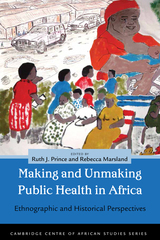
This volume explores how medical professionals and patients, government officials, and ordinary citizens approach questions of public health as they navigate contemporary landscapes of NGOs and transnational projects, faltering state services, and expanding privatization. Its contributors analyze the relations between the public and the private providers of public health, from the state to new global biopolitical formations of political institutions, markets, human populations, and health. Tensions and ambiguities animate these complex relationships, suggesting that the question of what public health actually is in Africa cannot be taken for granted. Offering historical and ethnographic analyses, the volume develops an anthropology of public health in Africa.
Contributors: P. Wenzel Geissler; Murray Last; Rebecca Marsland; Lotte Meinert; Benson A. Mulemi; Ruth J. Prince; and Noemi Tousignant.

Shattering the myths about what’s wrong with managed health care, this penetrating introduction to managed care explains its origins and identifies its real achievements and shortcomings.
Walter A. Zelman and Robert A. Berenson argue that many criticisms of managed care tend to idealize the costly and fragmented insurance system it supplanted, without pinpointing the true inadequacies of today’s managed care. In addition to providing reasoned answers to the most alarmist critiques of managed care, the authors maintain that it has not fulfilled its potential to improve the overall quality of care.
The authors propose thirteen concrete recommendations for raising quality in managed care programs, ranging from enacting additional legal protections and increased disclosure to putting the purchasing power in the hands of those who care most about quality — individuals, rather than employers.
With practical solutions for making managed care better, The Managed Care Blues and How to Cure Them is a bold call for greater consumer protection, knowledge, and power in the health care arena.

In Britain, the Thatcher government's plan to inject a market into the state-administered national health service resulted in a circumscribed experiment orchestrated from above. In Germany, the Kohl government sought to repair defects in the corporatist arrangement with doctors and insurers, thus limiting the market experiment and designing it to enhance the solidarity of the national health insurance system. In the United States, private market actors foiled Clinton's bid to expand the federal government's role in the private health care system through managed competition and national insurance. But market reform continued, albeit led by private employers and with government officials playing a reactive role. Actors and institutions surrounding the existing health care settlement in each country created particular reform politics that either militated against or fostered the deployment of competition.
The finding that major transformations are occurring in private as well as public systems of social protection suggests that studies of social policy change expand their focus beyond statutory welfare state programs. The book will interest political scientists and policymakers concerned with welfare state reform in advanced industrial societies; social scientists interested in the changing balance among state, market, and societal interests in governance; and health policy researchers, health policymakers, and health care professionals.
Susan Giaimo is an independent scholar. She completed her Ph.D. in Political Science at the University of Wisconsin-Madison. She also earned an MSc in Politics from the London School of Economics and Political Science, with the Politics and Government of Western Europe as the branch of study. After completing her doctorate, she was a postdoctoral fellow in the Robert Wood Johnson Foundation Scholars in Health Policy Research Program, University of California at Berkeley, and the Robert Bosch Foundation Scholars Program in Comparative Public Policy and Comparative Institutions, American Institute for Contemporary German Studies, Johns Hopkins University. She taught in the Political Science Department at Massachusetts Institute of Technology for five years. During that period she won the Society for the Advancement of Socio-Economics Founder's Prize for "Adapting the Welfare State: The Case of Health Care Reform in Britain, Germany, and the United States," a paper she coauthored with Philip Manow. She has also worked for health maintenance organizations (HMOs) and medical practices in the United States.
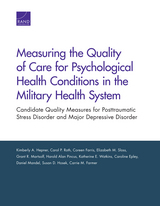

With the defeat of national health reform, many liberals have looked to the states as the source of health policy innovation. At the same time, many in the new Republican majority and several governors also support increased state control. In contrast, Michael S. Sparer convincingly argues that states by themselves can neither satisfy the liberal hope for universal coverage nor the conservative hope for cost containment. He also points to two critical drawbacks to a state-dominated health care system: the variation in coverage among states and the intergovernmental tension that would inevitably accompany such a change.
Supporting his arguments, Sparer analyzes the contradictions in operations and policies between the New York and California Medicaid programs. For instance, why does New York spend an average of $7,286 on its Medicaid beneficiaries and California an average of $2,801? The answer, the author suggests, is rooted in bureaucratic politics. California officials enjoy significant bureaucratic autonomy, while the system in New York is fragmented, decentralized, and interest-group dominated. The book supports this conclusion by exploring nursing home and home care policy, hospital care policy, and managed care policy in the two states. Sparer's dissection of the consequences of state-based reform make a persuasive case for national health insurance.

Medicaid, one of the largest federal programs in the United States, gives grants to states to provide health insurance for over 60 million low-income Americans. As private health insurance benefits have relentlessly eroded, the program has played an increasingly important role. Yet Medicaid’s prominence in the health care arena has come as a surprise.
Many astute observers of the Medicaid debate have long claimed that “a program for the poor is a poor program” prone to erosion because it serves a stigmatized, politically weak clientele. Means-tested programs for the poor are often politically unpopular, and there is pressure from fiscally conservative lawmakers to scale back the $350-billion-per-year program even as more and more Americans have come to rely on it. For their part, health reformers had long assumed that Medicaid would fade away as the country moved toward universal health insurance. Instead, Medicaid has proved remarkably durable, expanding and becoming a major pillar of America’s health insurance system.
In Medicaid Politics, political scientist Frank J. Thompson examines the program’s profound evolution during the presidential administrations of Bill Clinton, George W. Bush, and Barack Obama and its pivotal role in the epic health reform law of 2010. This clear and accessible book details the specific forces embedded in American federalism that contributed so much to Medicaid’s growth and durability during this period. It also looks to the future outlining the political dynamics that could yield major program retrenchment.


Governments throughout the industrialized world make decisions that fundamentally affect the quality and accessibility of medical care. In the United States, despite the absence of universal health insurance, these decisions have great influence on the practice of medicine.
In Medical Governance, David Weimer explores an alternative regulatory approach to medical care based on the delegation of decisions about the allocation of scarce medical resources to private nonprofit organizations. He investigates the specific development of rules for the U.S. organ transplant system and details the conversion of a voluntary network of transplant centers to one private rulemaker: the Organ Procurement and Transplantation Network (OPTN).
As the case unfolds, Weimer demonstrates that the OPTN is more efficient, nimble, and better at making evidence-based decisions than a public agency; and the OPTN also protects accountability and the public interest more than private for-profit organizations. Weimer addresses similar governance arrangements as they could apply to other areas of medicine, including medical records and the control of Medicare expenditures, making this timely and useful case study a valuable resource for debates over restructuring the U.S. health care system.
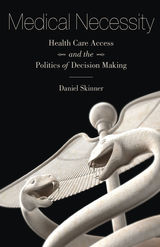
How the politics of “medical necessity” complicates American health care
The definition of medical necessity has morphed over the years, from a singular physician’s determination to a complex and dynamic political contest involving patients, medical companies, insurance companies, and government agencies. In this book, Daniel Skinner constructs a comprehensive understanding of the politics of defining this concept, arguing that sustained political engagement with medical necessity is essential to developing a health care system that meets basic public health objectives.
From medical marijuana to mental health to reproductive politics, the concept of medical necessity underscores many of the most divisive and contentious debates in American health care. Skinner’s close reading of medical necessity’s production illuminates the divides between perceptions of medical need as well as how the gatekeeper concept of medical necessity tends to frame medical objectives. He questions the wisdom of continuing to use medical necessity when thinking critically about vexing health care challenges, exploring the possibility that contracts, rights, and technology may resolve the contentious politics of medical necessity.
Skinner ultimately contends that a major shift is needed, one in which health care administrators, doctors, and patients admit that medical necessity is, at its base, a contestable political concept.
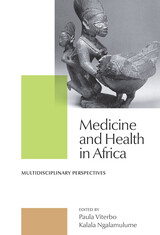

If a teaching hospital loses funding, what is the next option?
Mergers of Teaching Hospitals in Boston, New York, and Northern California investigates the recent mergers of six of the nation's most respected teaching hospitals. The author explains the reasons why these institutions decided to change their governance and the factors that have allowed two of them to continue to operate while forcing the third to dissolve after only 23 months of operation.
The case studies contained within this book rely on an impressive amount of research. Notably, instead of citing only published articles and books, the author includes information from numerous, extensive personal interviews with key participants in the various mergers. With this research the author not only presents to the reader a picture of why these mergers came about, but also investigates how the organizations have fared since joining together. The mergers are analyzed and compared in order to identify various methods of merger formation as well as ways in which other newly formed hospitals might accomplish a variety of important goals.
Offering a spectacular account of some of the mergers that occurred in the health care field at the close of the twentieth century, these stories provide insight into academia's relationship with teaching hospitals and the challenges involved in bringing prestigious and powerful medical institutions together. The institutions discussed are Partners, the corporation which includes the Massachusetts General Hospital and the Brigham and Women's Hospital, New York-Presbyterian Hospital, the union of the New York and Presbyterian hospitals in New York City, and the UCSF Stanford, the merged teaching hospitals of the University of California, San Francisco and Stanford. This book will particularly appeal to professionals and academics interested in medicine, business, and organizational studies.

A generation has passed since a physician first noticed that women who drank heavily while pregnant gave birth to underweight infants with disturbing tell-tale characteristics. Women whose own mothers enjoyed martinis while pregnant now lost sleep over a bowl of rum raisin ice cream. In Message in a Bottle, Janet Golden charts the course of Fetal Alcohol Syndrome (FAS) through the courts, media, medical establishment, and public imagination.
Long considered harmless during pregnancy (doctors even administered it intravenously during labor), alcohol, when consumed by pregnant women, increasingly appeared to be a potent teratogen and a pressing public health concern. Some clinicians recommended that women simply moderate alcohol consumption; others, however, claimed that there was no demonstrably safe level for a developing fetus, and called for complete abstinence. Even as the diagnosis gained acceptance and labels appeared on alcoholic beverages warning pregnant women of the danger, FAS began to be de-medicalized in some settings. More and more, FAS emerged in court cases as a viable defense for people charged with serious, even capital, crimes and their claims were rejected.
Golden argues that the reaction to FAS was shaped by the struggle over women's relatively new abortion rights and the escalating media frenzy over "crack" babies. It was increasingly used as evidence of the moral decay found within marginalized communities--from inner-city neighborhoods to Indian reservations. With each reframing, FAS became a currency traded by politicians and political commentators, lawyers, public health professionals, and advocates for underrepresented minorities, each pursuing separate aims.

Given recent developments in health care and policy and a steadily increasing population of people of Mexican origin in the United States, a comprehensive look at Mexican American health has never been more necessary. Adela de la Torre and Antonio Estrada first accomplished such an overview with Mexican Americans and Health in 2001, and they have since continued to revise and expand their initial work. With a multitude of additions and renovations, Mexican Americans and Health, 2nd Edition provides a timely and accessible description of current topics in Latino health.
De la Torre and Estrada once again present a broad and nuanced understanding of recent issues involving Mexican American health and well-being, this time with the addition of discussions on:
* the new U.S. Human Development Index to contextualize the health, education, and income status of Mexican Americans relative to other population groups,
* emerging diseases, such as diabetes and obesity,
* recent health-care reforms under the Obama administration,
* substance abuse, sexual risk, and psychological distress among HIV-positive individuals in the gay/bisexual community,
* and predictions of future trends for the next decade.
This new volume has been updated throughout to reflect the many developments in health care since its first edition. Mexican Americans and Health, 2nd Edition continues to present data on a large number of health issues that are important and relevant to the Mexican American population, while describing the social contexts in which they are occurring. Its comprehensive and interdisciplinary approach brings originality and focus to a dynamic literature.

- how values such as machismo, familismo, and marianismo influence care-seeking decisions and treatment of illness;
- how factors such as cultural values, socioeconomic status, peer pressure, and family concerns can contribute to substance abuse;
- how cultural attitudes toward sex can heighten the risk of AIDS—and how approaches to AIDS prevention and education need to reflect core cultural values such as familismo, respeto, and confianza. The book also addresses concerns of Mexican Americans regarding the health care system. These include not only access to care and to health insurance but also the shortage of bilingual and bicultural health care professionals. This coverage stresses not only the importance of linguistic competency but also the need to understand folklore illnesses, herbal remedies, and spiritual practices that can delay the treatment of illness and either complement or compromise treatment. Of all the issues that face the contemporary Mexican American community, none is as important to its very survival as health and health care. This timely book gives readers a broad understanding of these complex issues and points the way toward a healthier future for all people of Mexican origin. Mexican Americans and Health and Chicano Popular Culture are the first volumes in the series The Mexican American Experience, a cluster of modular texts designed to provide greater flexibility in undergraduate education. Each book deals with a single topic concerning the Mexican American population. Instructors can create a semester-length course from any combination of volumes, or may choose to use one or two volumes to complement other texts.


International migrants compose more than three percent of the world’s population, and internal migrants—those migrating within countries—are more than triple that number. Population migration has long been, and remains today, one of the central demographic shifts shaping the world around us. The world’s history—and its health—is shaped and colored by stories of migration patterns, the policies and political events that drive these movements, and narratives of individual migrants.
Migration and Health offers the most expansive framework to date for understanding and reckoning with human migration’s implications for public health and its determinants. It interrogates this complex relationship by considering not only the welfare of migrants, but also that of the source, destination, and ensuing-generation populations. The result is an elevated, interdisciplinary resource for understanding what is known—and the considerable territory of what is not known—at an intersection that promises to grow in importance and influence as the century unfolds.
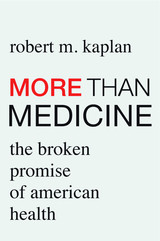
Stanford’s pioneering behavioral scientist draws on a lifetime of research and experience guiding the NIH to make the case that America needs to radically rethink its approach to health care if it wants to stop overspending and overprescribing and improve people’s lives.
American science produces the best—and most expensive—medical treatments in the world. Yet U.S. citizens lag behind their global peers in life expectancy and quality of life. Robert Kaplan brings together extensive data to make the case that health care priorities in the United States are sorely misplaced. America’s medical system is invested in attacking disease, but not in addressing the social, behavioral, and environmental problems that engender disease in the first place. Medicine is important, but many Americans act as though it were all important.
The United States stakes much of its health funding on the promise of high-tech diagnostics and miracle treatments, while ignoring strong evidence that many of the most significant pathways to health are nonmedical. Americans spend millions on drugs for high cholesterol, which increase life expectancy by only six to eight months on average. But they underfund education, which might extend life expectancy by as much as twelve years. Wars on infectious disease have paid off, but clinical trials for chronic conditions—costing billions—rarely confirm that new treatments extend life. Meanwhile, the National Institutes of Health spends just 3 percent of its budget on research on the social and behavioral determinants of health, even though these factors account for 50 percent of premature deaths.
America’s failure to take prevention seriously costs lives. More than Medicine argues that we need a shakeup in how we invest resources, and it offers a bold new vision for longer, healthier living.
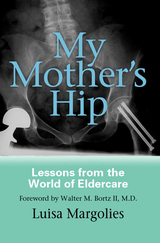
READERS
Browse our collection.
PUBLISHERS
See BiblioVault's publisher services.
STUDENT SERVICES
Files for college accessibility offices.
UChicago Accessibility Resources
home | accessibility | search | about | contact us
BiblioVault ® 2001 - 2024
The University of Chicago Press









